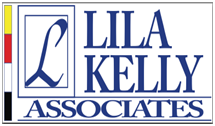Could Unconscious Bias Be the Real Reason a Diverse Applicant Rejects Your Job Offer?
When an applicant receives a job offer, they decide to either accept or decline it. When they accept, the reasons for their positive decision are easy to discover. But, rarely do we hear the underlying reasons why our top choice does not accept the offer.
A diverse applicant might decide that a particular organization is not a place they want to work for a number of reasons. Even interactions with people not directly involved in the interview process can impact an applicant’s decision whether to take a job. Subtle and not so subtle behaviors of interviewers, other employees, and even the receptionist can make a potential employee feel disrespected or unwelcome. Following are a few examples from my research on diverse applicants’ experiences in the hiring process related to this.
Lakesha, an HR Employment Representative and African American, had this experience:
“The people I met in the HR department were very nice. When I met the woman who administered the employment test, it was another story. It was like she thought I wouldn’t understand the test and wouldn’t do well. After I read the test instructions, she felt it was necessary to explain what I had just read. It was the kind of thing that really gave me a negative feeling about that organization. I went home with a bad taste in my mouth that day.”
Jennie, a Human Resources Director and American Indian, shared this perspective:
“Normally if you are treated badly, and that might encompass a secretary looking at you and not attending to you as you come in the front door, making you feel right off that you are a non-person or that you are not important, that is a real turn-off. They are expecting somebody else when you as an American Indian show up at their door.”
When asked how she knew this happened because of her ethnicity and not because the receptionist might have been having a bad day, she replied that when she observed this same person treating others in a friendly and welcoming manner, she knew.
Rodney, a Computer Department Manager and African American, shared this experience:
“Going through the interview, the interviewer said, ‘We have a number of African Americans that work here. . . blah, blah, blah.’ It came across that he was trying to satisfy some diversity requirement to me. Knowing the background of the company, talking to one or two African Americans that work there. . . I knew what it was all about. He called me to fill out the application to move forward with the process, because I would have gotten the job. I wasn’t interested.”
Interviewers actions based on their assumptions about an applicant may be at an unconscious bias level. It is important for interviewers and hiring managers to be aware of this, because their biased behaviors could influence whether an applicant decides to move forward or withdraw from the interview process. All the people they meet throughout the interview process should make applicants feel comfortable.
The ultimate goal of the interview process is to hire qualified employees. An organization expends substantial resources to recruit, interview, and make the decision to hire a diverse applicant, with the hope that their top choice will accept the offer. Learning and practicing non-biased behaviors can help eliminate hidden barriers when interviewing diverse applicants.
More examples of unconscious bias and methods for eliminating barriers for diverse applicants are in the online training programs on Integrating Diversity and Inclusion into the Hiring Process.
Copyright © 2023 Lila Kelly Associates, LLC. Not to be reprinted without written permission from Lila Kelly. Integrating Diversity into Recruiting, Interviewing, Hiring and Retention – Since 1992. This article includes excerpts from Lila Kelly’s online training and books at diversityintegration.com. To stay up to date on all the latest from Lila Kelly Associates & DiversityIntegration.com subscribe to our newsletter.

